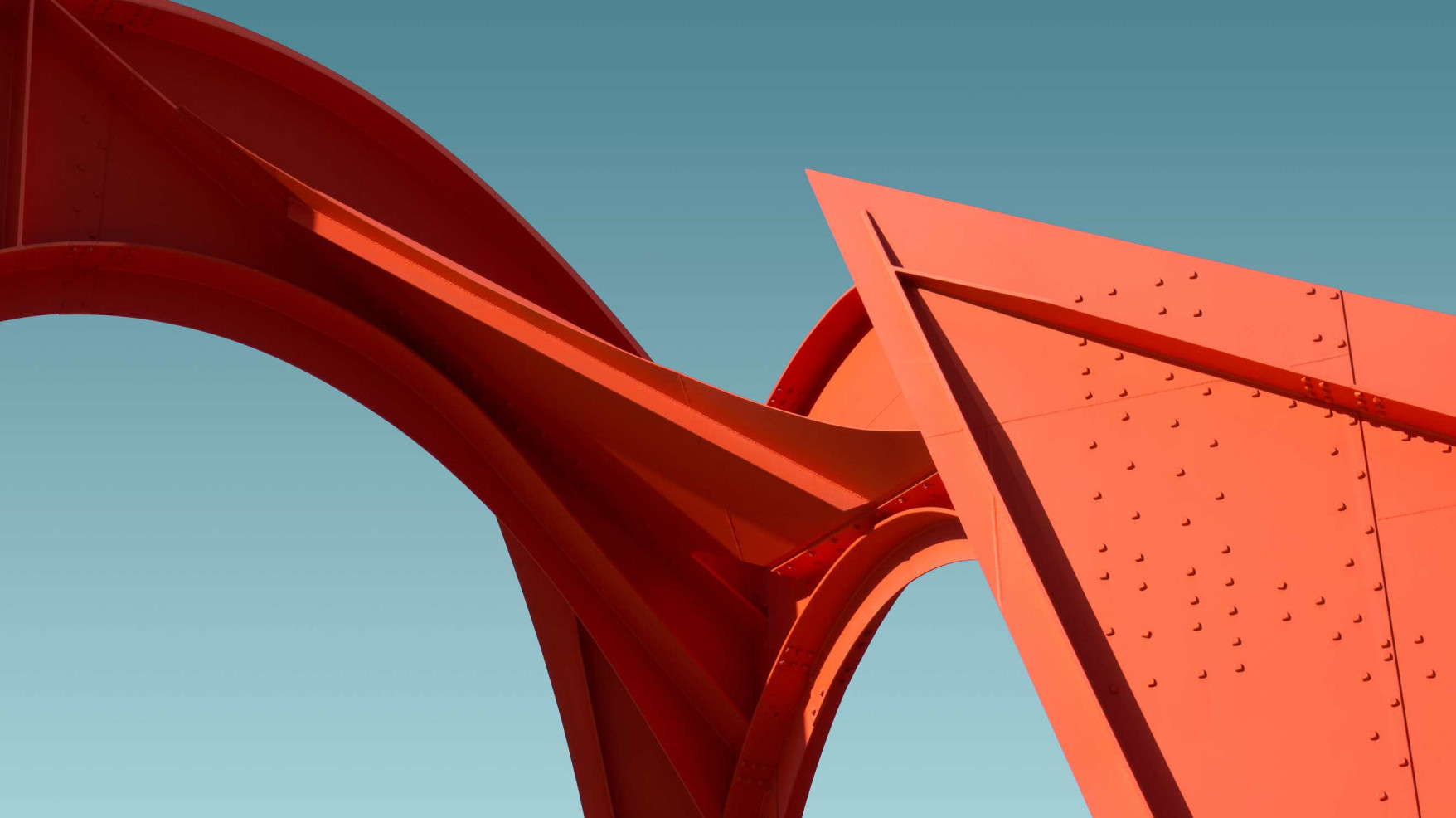Technology
April 2022
Is Web3 the Future of Tech?

The tech landscape is constantly changing. You've probably heard the terms 'Web3' or 'NFTs' or at the very least 'Cryptocurrency' a lot recently and how these technological innovations are going to change the world, but what are they and is this really the future of tech?
Web3 is an umbrella term for a new generation of the internet that's built on blockchain technology. Web3 aims to create a more decentralised, secure and user-centric web experience and transfer power from big tech giants, such as Facebook, Google, and Amazon which currently dominate the traditional web, back into the hands of users through several technological innovations in peer-to-peer networking, blockchain technology and data transfer.
The World Wide Web (WWW) has come a long way since its inception in the early 1990s. Web 1.0 was the very first iteration of the internet, a traditional, read-only web which consisted of documents connected through hyperlinks, no social networks and no dynamic content - just documents and links. However, the current iteration of the internet has shortcomings, such as centralised control, privacy concerns, and lack of ownership over user data. These issues have paved the way for Web3 to become the future of tech.
Through innovations, Web2, the current version of the internet, took Web1 to the next level. The current internet allows us to engage with the internet and other users through dynamic content, multi-media and social platforms. We're all familiar with and have likely used the web in its current form however, this version of the internet has given rise to huge "mega-corporations" that have significant control over the internet traffic and has brought about many privacy, anti-trust and moral concerns over the years.
This is where Web 3.0 looks to address many of these issues. Through a different infrastructure. Web 3.0 is aiming to create an internet that's distributed, free of middlemen and with platforms that are built, owned and run by everyone.
It's a cool concept that's already making waves in certain areas of technology, such as Fintech and whilst its intentions are pure there are several challenges to overcome before we can expect to see Web3 as a universally adopted concept.
Web3 is still a concept that has many questions attached to it whether that be in a legal sense with compliance, regulation and copyright or through solving the technology challenges with security, speed and user-complexity that still exist within the current Web3 platforms that are out there.
In 2021, the total amount of venture capital invested in Web3 projects reached $5.5 billion, indicating that investors see a lot of potential in the technology and believe it could be the next big thing.
Web3 could be the future of the internet, due to how it addresses certain issues surrounding the current internet, such as centralisation, data privacy and ownership. By creating a more decentralised and secure web, Web3 has the potential to transform the way we interact online and do business.
With the rise of blockchain technologies, there are many advantages to this kind of innovation. But with it comes several challenges as well, including personal data management and reputation management. Read on to find out more.
The Advantages of Web3:
User Experience.
one of the main promises of Web3 is to improve the user experience by enabling more control and ownership over data. With Web3, users have complete control over their digital identities and can decide who gets access to their data, making the web more user-centric, with the ability to have personalised experiences.
Data Privacy Control.
Blockchain technology will utilise data encryption providing the most significant protection for end-user information. You've probably heard of big corporations like Google and Facebook using people's data for their purposes or to sell to third parties. However, Web3 aims to return ownership and control over people's data.
A Platform with No Restrictions.
All users will have access to the blockchain network, so anyone can create an address or interact with the system. Users won't be restricted based on gender, income, geographical location or sociological factors, making it easier to transfer assets or wealth from anywhere in the world.
Single Profile Creation.
Users do not have to create individual profiles for each platform. With Web3, users will have a single profile that can access all platforms on the blockchain.
Any information by users will be owned by them, so corporations won't be able to access personal data without the user's permission first.
Enjoying what you're reading?
See our workThe Disadvantages of Web3:
Requires More Advanced Devices.
Web 3.0 requires advanced computer capabilities and devices to fully utilize its features and benefits. Without these, individuals and businesses will be unable to access the full potential of the technology. To make Web 3.0 more widely accessible, the features and capabilities of devices must be improved. Currently, access to Web 3.0 is limited to a small group of individuals and businesses with access to advanced technology.
Currently Unsuitable for Widespread Use.
Web3 is more intelligent and more efficient. However, the technology is not ready yet for mass use, as much work is still required on web3 to ensure advancements, privacy laws, and data use are properly in place.
A Rise in Reputation Management is Expected.
As web3 reduces anonymity and increases access to personal information, reputation management will be an increased concern for brands and companies online. They will need to actively manage their online image and reputation to stay competitive.
This may involve providing customers with market intelligence, business insights, and effective digital marketing strategies. Overall, managing one's reputation will be vital for success in the era of Web3.
Complicated Functionality.
One of the main challenges facing web3 technologies is its overall complexity for any new user. This can be a significant barrier to adoption, especially as it combines older web tools with newer technologies such as AI and blockchain and involves increased interconnectivity among individuals. And with the nature of web3 technologies making it accessible to only users and businesses with advanced devices, it's likely the adoption of web3 will be slow amongst users.
What do We Think...
Creating a decentralised virtual world, in theory, has the potential to create a more equal internet and overall better world, which seems like the next logical step in the web, but is this really the future?
We think it's in its early stages, but it's still very open. It's a very exciting technology with innovations, platforms and ideas that we already love however, like any new pioneering advancements with the potential to fundamentally shift how we do things, there are an equal number of issues surrounding Web3 as a concept that will create roadblocks along the way to it being adopted.
Like most advances in the tech space, it can be a difficult concept for some to grasp as the definition of Web3 is a complicated one by nature from its idealistic viewpoint on solving current problems, to its technological implementation on a theoretical level. What is definite, however, is we cannot ignore Web3 and its prominence in the tech space right now and the influence it is having over individuals and businesses alike.
What we can take away from this article, is how we can consider to implement this kind of tech into our businesses. Something we're actively working on here at Barr Media.
If you found this article interesting, let us know! We would love to write more on Web3, how it works, what it's solving and the issues that arise with its adoption!
